5 ways to completely wind down after work
Dr Gina Cleo, a habit-change specialist share expert tips to make winding down after work easy
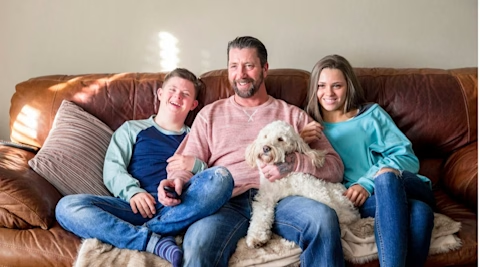
How many of us can honestly say that we make the time to truly unwind after a long workday?
Unplugging from devices can feel almost impossible in an always-on culture, meaning there is often little difference between being glued to the office desktop, and scrolling on our smartphones after hours.
Benefits of winding down and ‘switching off’
Often, we arrive home after a long day, only to continue working. Finishing off that endless to-do list, scanning our inbox or answering late night calls from demanding managers can make it feel like the work day only truly stops when we finally go to bed, and it’s impacting our health and wellbeing.
Studies show that excessive interactions with work-related calls, emails and tasks after hours can increase the risk of emotional exhaustion, psychological detachment and create family conflict, as well as making us less engaged at work the next day.
The evidence is so compelling that the Fair Work Act, opens in a new tab has recently included a “right to disconnect” for most working Australians. That means employees can refuse to answer non-urgent work calls on days off, and can refuse to monitor, read or respond to unreasonable work demands outside of hours.
We spoke with Dr Gina Cleo, a habit-change specialist, for some tips on how to wind down after work.
1. Build some clear boundaries between work and home
To effectively unwind after work, making a change – literally – can help us get into ‘home’ mode, says Gina.
Getting changed out of your workwear helps to create an association that it’s time to relax and be at home.
Physical and visual boundaries are important too. If you do have a workspace at home, try and keep it separate from where you like to relax in the evening, and put your work laptop and documents away when you get home so they’re not in your eyeline.
2. Give notifications a hard finish
Trying to relax and recharge after a day at the office is going to be impossible if you’re seeing and hearing constant notifications from phones, computers and smart watches.
“Turn off notifications after a certain time,” advises Gina. “That means no emails, no little ‘ping’, no communications from work.”
Including your office days and hours on your email signature and voicemail sends a clear message to people calling at night that you won’t respond until the next available time. As well as setting helpful expectations to others, this can help to relieve any nagging desire to check your emails and messages late at night.
Find practical tips for disconnecting from work devices while staying productive, opens in a new tab.
3. Break up your routine
It’s important to break up your routine after work. Take the time to make space for the activities that bring you joy and are unrelated to work. That might include cooking, spending time with family or friends or even binge watching the latest Netflix must-watch. If it involves movement and gets you outside in the fresh air, even better.
“It could be going for a walk or playing in the backyard with the kids or dog,” says Gina. “Sometimes we’re mentally exhausted at the end of the day but not physically exhausted.”
If your day job involves mostly sitting, try to incorporate some movement after hours to support your physical and mental health.
4. Eat and drink mindfully
If part of your evening wind-down routine after a long day at work includes a glass of wine, a bag of chips and a tub of ice cream, you could be sabotaging your rest and your health.
Research shows that even small amounts of alcohol, opens in a new tab in the evening can have a detrimental effect on sleep quality, leading to fatigue and a lack of focus and energy the next day. And emotional eating, opens in a new tab can have the same effects.
“We might have an extra glass of wine or comfort eat to relieve some of the stress from the day,” explains Gina. “Although those things might seem like they’re good strategies at the time, they’re not helping us effectively.”
Learn more here about creating a healthier relationship with alcohol, opens in a new tab and what to eat to fuel your body and mind., opens in a new tab
5. Leave work at work
Many of us tend to take the office home, leaving our internal work switch on ‘standby’ instead of turning it off – meaning we don’t effectively unwind. This can be even trickier to navigate if you do work from home.
“If you do take work home, set really clear boundaries,” advises Gina. “I’d go into a quiet place, get the work done, set time limits around it if possible, and then start that routine of getting out of your workwear and turning off notifications.”
Learn more about how to stay healthy and productive while working from home, opens in a new tab.
Looking for extra support?
If you have concerns about your inability to switch off, or if you’ve noticed changes in the way you’re thinking or feeling, speak to your GP to get personalised advice and support.
The information contained in this article is provided as general information only and is not intended to be a substitute for professional medical advice, diagnosis, or treatment. For personalised medical advice, always consult your qualified healthcare professional.
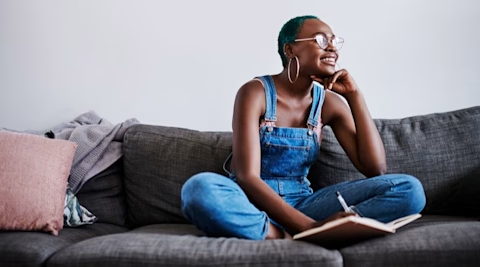
5 minutes for you: Motivating mantras to build workplace confidence
Try these motivating mantras to build resilience and self-confidence.
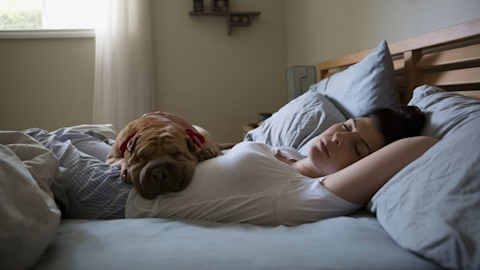
12 tips for getting a better night’s sleep
Expert tips to improve sleep quality, boost energy and manage work stress for better rest.
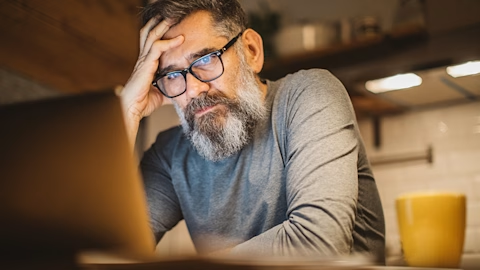
Coffee, alcohol and sleep: How your morning and nighttime habits are causing problems at bedtime
Are you daily habits impacting your sleep more than you think?
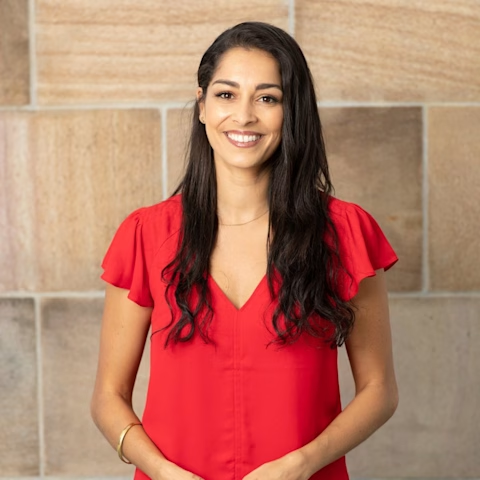
Dr Gina Cleo
Dr Gina Cleo is one of Australia’s leading wellbeing experts, with a PhD in habit change. She is a dietitian, but Dr Gina’s passion for wellbeing extends beyond just what we eat. She has dedicated her career to helping people understand their habits and how small, consistent steps can impact health and wellbeing. Gina has a secret love-affair with Microsoft Excel and chai lattes.